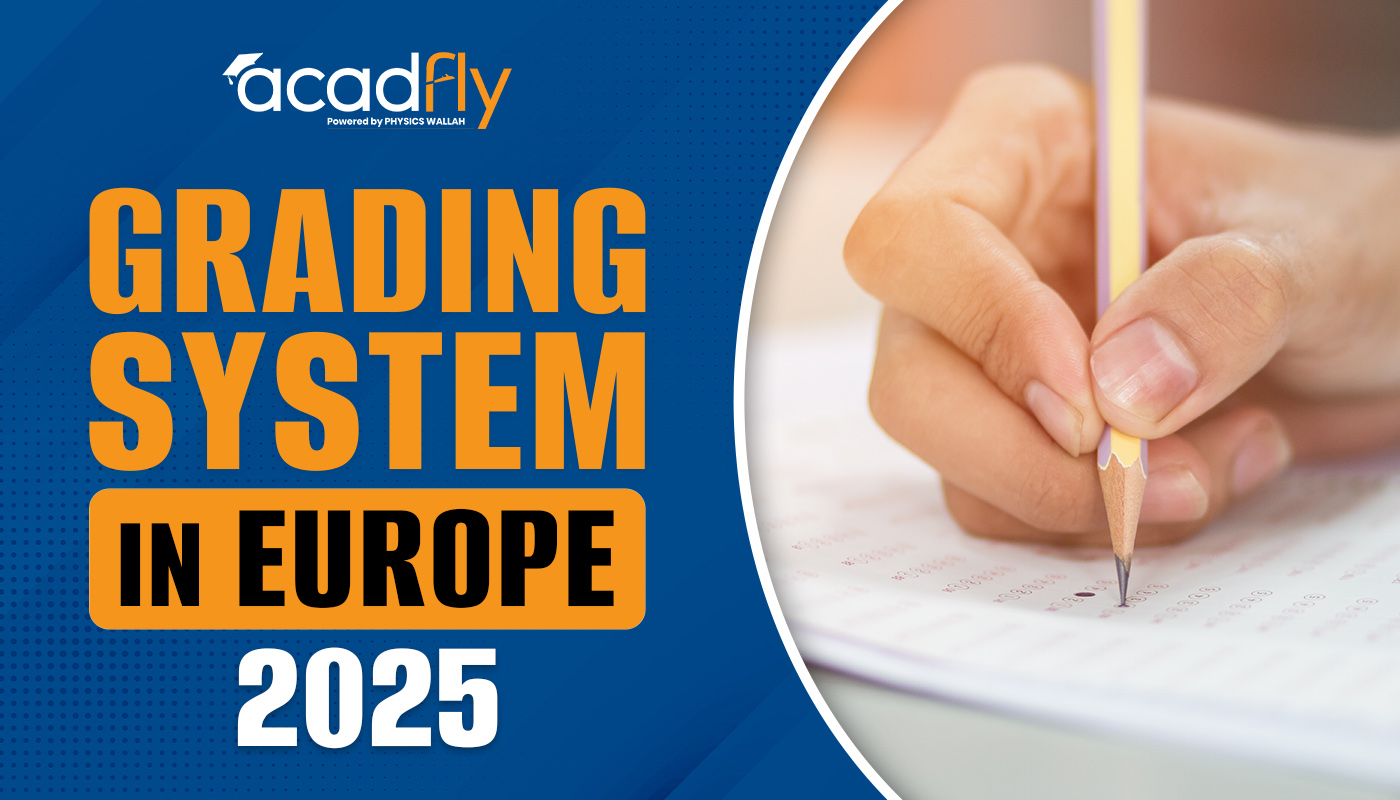
PG Diploma Courses in Canada
PG Diploma Courses in Canada - A postgraduate diploma in Canada is a one to two-year programme that provides undergraduate students with hands-on experience to assist them prepare for a job. In Canada, you can only take a postgraduate diploma course, also known as a graduate diploma, after earning a bachelor's degree. The average cost of pursuing a postgraduate diploma in Canada is between CAD 8000 and CAD 20,000 (5 lakhs to 12 lakhs INR). You may expect to earn between CAD 35,000 and CAD 90,000 per year once you complete the course.
The PG Diploma in Canada is the most popular degree because of its short duration, low cost, and practical instruction. Pursuing top PG Diploma degrees in Canada offers one-year post-study work visa eligibility, whereas two-year courses give immigration chances and additional CRS points for Canadian PR.
PG Diploma Courses in Canada
Canada offers PG Diplomas in a variety of sectors, including engineering, management, health science, and information technology. Some of the prominent universities offering PG Diploma in Canada based on the most sought-after courses are:
PG Diploma Courses in Canada for Civil Engineering
Civil engineering in Canada is becoming more data-driven, and civil engineers with excellent data analytics abilities are in great demand. Some popular civil engineering postgraduate diploma courses in Canada are:
|
Program and University |
Tuition Fee (CAD) |
|
University of Windsor Honors Certificate in Civil Engineering |
22,636 |
|
Conestoga College Ontario College Graduate Certificate Structural Steel Management and Detailing |
15,382 |
|
Centennial College Graduate Certificate in Construction and Project Management |
25,809 |
|
Concordia University Graduate Certificate in Building Engineering |
26,325 |
|
George Brown College Diploma in Construction Management |
26,211 |
PG Diploma Courses in Canada for Computer Science
PG Diploma Courses in Computer Science in Canada equip you for data-driven professions in the technology industry. Some of the popular PG diploma courses in Canada in the field of computer science are:
|
Program and University |
Duration |
Average Annual Fee (CAD) |
|
Concordia University Computer Science (GrDip) |
1 year |
13,000 |
|
Humber College PG Diploma in Computer Programming |
2 years |
18,058 |
|
Conestoga College PG Diploma in Computer Programming and Analysis |
1 year |
14,163 |
|
Douglas College PG Diploma in Computer and Information Systems |
2 years |
19,100 |
|
George Brown College PG Diploma in Computer Programming and Analysis |
3 years |
17,850 |
PG Diploma Courses in Canada for Psychology
The Canadian Bureau of Labour Market Information (BLMI) predicts that psychologists will have an 11% increase in employment between 2020 and 2030. Some popular postgraduate diploma courses for psychology in Canada are:
|
University & Program Name |
Duration |
Annual Tuition Fee (CAD) |
|
University of British Columbia - Child and Adolescent Mental Health |
1 year |
38,000 |
|
McGill University - Applied Dispute Resolution |
1 year |
32,000 |
|
University of Toronto - Psychological Assessment |
1 year |
35,000 |
|
York University - Expressive Therapies |
1 year |
28,000 |
|
Queen's University - Addictions and Mental Health |
1 year |
30,000 |
PG Diploma Courses in Canada for Social Work
PG Diplomas in Social Work often concentrate on specialised areas such as child and youth advocacy, addictions and community services, and family intervention. Some prominent postgraduate diploma courses for social work in Canada include:
|
University & Program Name |
Duration (Months) |
Annual Tuition Fee (CAD) |
|
University of Toronto - Community Development |
12 |
32,000 |
|
University of Calgary - Child and Youth Advocacy |
10 |
28,500 |
|
McGill University - Mental Health and Social Work |
12 |
35,000 |
|
Dalhousie University - Addictions and Community Services |
12 |
29,000 |
|
University of British Columbia - Family Intervention |
12 |
39,000 |
Why Study PG Diploma Courses in Canada?
Canada is home to some of the world's greatest institutions, which have consistently ranked well in the QS World University Rankings. These universities have also been ranked highly in the Times Higher Education World University Rankings. Before looking into postgraduate diploma programmes in Canada, consider why overseas students choose to study in Canada.
Land well-paying jobs: Postgraduate diploma programmes in Canada are highly valued across the world. The degrees are internationally accepted, and you may find high-paying work in any country.
Internship Opportunities: International students pursuing a postgraduate diploma in Canada can take advantage of internship opportunities available at Canadian universities. This aids in getting real-world experience and opens the door to permanent work options upon completion of the course.
Better Scope for Higher Education: Diploma studies in a specialised field provide a solid basis for pursuing PhD programmes. Students will also acquire valuable insight into the specific business, which can assist them advance their careers.
PG Diploma Courses in Canada - Eligibility Criteria
Unlike a master's degree in Canada, you can apply for a postgraduate diploma course after completing a three-year bachelor's degree. Some key entrance requirements for obtaining a postgraduate diploma in Canada are:
|
Eligibility Requirements |
Scores/Data |
|
Undergraduate Aggregate Marks |
At least 65% |
|
Work Experience (for marketing, management, and business administration courses) |
2-3 years |
|
English Language Proficiency Tests (IELTS) |
6.5 and above |
|
English Language Proficiency Tests (TOEFL) |
90 to 100 |
|
PTE |
58 |
|
Duolingo |
115 |
|
GMAT Scores (for PG Diploma in Management) |
550 - 675 |
|
GRE Scores (for Science, Technology, and Engineering fields) |
280 - 330 |
|
Acceptance Letter from Chosen Institution |
Required |
|
Work Experience |
2-3 years (Preferred) |
PG Diploma Courses in Canada - Document Required
As part of the admissions process, overseas students must provide copies of important documents to the university where they plan to study. These papers must be presented alongside the application form for the selected course of study. Though the precise collection of documentation for PG diploma courses in Canada is determined by the Canadian university you choose to study at, the following are the fundamental postgraduate diploma criteria in Canada that all overseas students must meet.
-
Academic transcripts
-
Student visa
-
SOP
-
Letter of recommendation.
-
Proof of funds
-
A copy of a valid passport.
-
Updated resume with current passport-sized photos.
PG Diploma Courses in Canada - Admission Process
To acquire admission to the PG diploma degree of your choice at your preferred institution in Canada, you must follow a guided admission procedure. We've highlighted the procedures an overseas student must take to seek admission to a diploma programme in Canada following graduation.
Step 1: Visit your preferred Canadian university's official website to learn more about the post-degree diploma programme in Canada that you want to pursue.
Step 2: Take note of the entrance requirements.
Step 3: Submit your application and pay the cost.
Step 4: Submit all of the essential documentation as specified in your course's application requirements. It comprises academic transcripts and other supporting documentation.
Step 5: If your application is accepted, you will be invited to an interview round with the college.
Step 6: After being selected, you will get an offer letter from the university that accepts your application. Ensure that the offer is unconditional.
Step 7: Pay the tuition amount and begin your study.
PG Diploma Courses in Canada - Job Opportunities
International students who complete their PG diploma courses in Canada have a variety of work prospects. Canada has multiple Fortune 500 corporations, and new enterprises are popping up around the country, creating work prospects for overseas students. We've compiled a list of the best career opportunities in various areas for overseas students who complete post-graduate diploma courses in Canada. The table below lists them, as well as the average pay after obtaining a PG diploma in Canada.
|
Job Role |
Average Annual Salary |
|
Marketing Specialist |
CAD 62,883 (INR 38,75,720) |
|
Quality Assurance Technician |
CAD 46,608 (INR 28,72,630) |
|
Human Resource Assistant |
CAD 48,482 (INR 29,88,130) |
|
Assistant Mechanical Engineer |
CAD 73,434 (INR 45,26,020) |
|
Chemical Engineering Research Assistant |
CAD 37,325 (INR 23,00,480) |
Conclusion
In conclusion, getting a postgraduate diploma in Canada provides access to a plethora of options. It's an enriching educational journey that includes top-tier colleges, various programmes, and significant practical experience. The qualifying requirements, admission procedure, and scholarship choices provided here are intended to lead prospective students effortlessly. When you consider the prospective work opportunities and a thriving academic atmosphere, a postgraduate diploma in Canada becomes an appealing option for people looking to further their careers on a global scale.
Navigate through the finest institutions, understand eligibility requirements, calculate fees, and investigate potential scholarship options. Physics Wallah empowers your road to Canadian education, enabling a well-informed and seamless pursuit of your academic goals in 2025.
FAQs
Q.1. How much income may overseas students earn after obtaining a postgraduate certificate in Canada?
Ans: There are several job prospects available after finishing a postgraduate diploma in Canada. The income you earn is determined on the job role you pick and the firm you apply to. The average annual pay for a Pharmacist is 106,327 CAD, whereas the entry-level Civil Engineer earns 49,569 CAD.
Q.2. Is it worthwhile to get a post-graduate diploma in Canada?
Ans: International students choose PG diplomas in Canada because the country boasts some of the greatest diploma-granting institutions in the world. These courses are short-term, lasting 12 to 24 months. It might be for two or three semesters. Because it is extensive practical application-based learning, you will get a solid foundation in the topic.
Q.3. Can I pursue a Masters or PhD after finishing PG diploma courses in Canada?
Ans: Yes, diploma degrees from the greatest Canadian institutions are acknowledged across the world. After earning your PG Diploma from a Canadian university, you can continue further study.
Frequently Asked Questions










